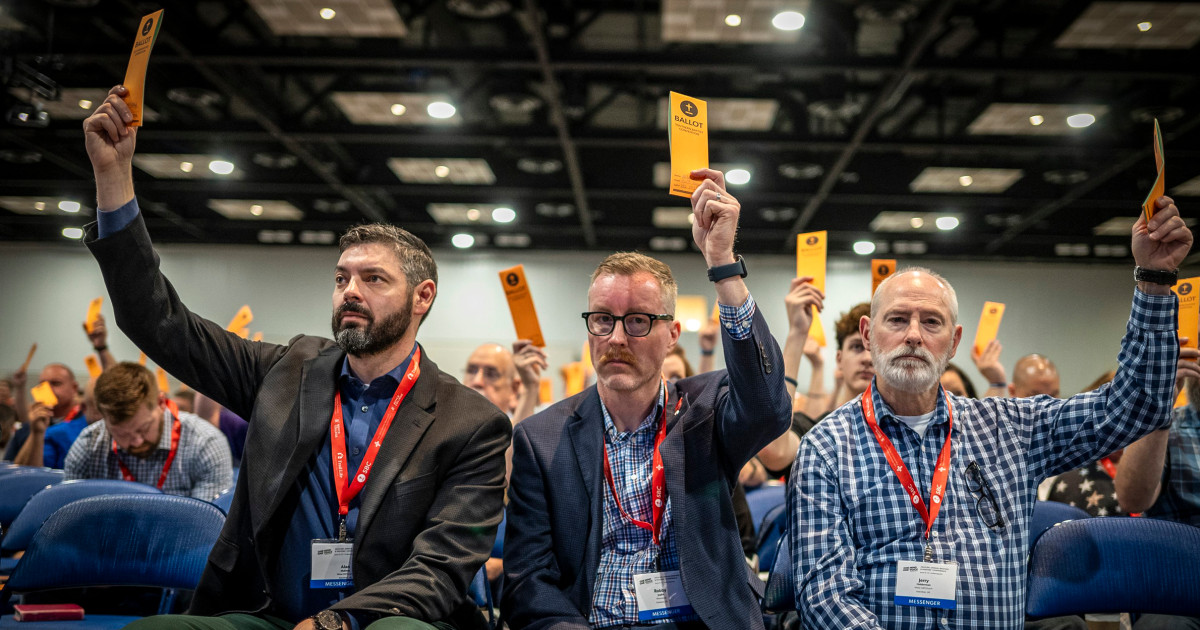The Southern Baptist Convention, the nation’s largest Protestant denomination, came out against in vitro fertilization at its annual meeting Wednesday.
Delegates in Indianapolis voted for the resolution opposing IVF, which also urged the denomination’s members “to advocate for the government to restrain actions inconsistent with the dignity and value of every human being, which necessarily includes frozen embryonic human beings.”
A particularly acute issue for delegates was the creation of multiple embryos through the IVF process, some or all of which may not ultimately be implanted. IVF often involves creating multiple embryos, because not all embryos may be viable. Some frozen embryos might also be discarded after successful pregnancies if the patients decide not to use them or for other concerns, such as genetic abnormalities.
Jason Thacker, an adviser to the Southern Baptist Resolutions Committee, said at a news conference Wednesday that the resolution “unequivocally” affirmed the Alabama Supreme Court’s position that embryos are considered children, regardless of location.
Some anti-abortion opponents who believe that life begins at conception have argued that such embryos should have the same rights as a person.
“There is a consistent belief, as our chair has already stated, that we believe that life begins at fertilization and is to be honored and cherished and protected at all stages, no matter the stage of development, nor location,” Thacker said.
The SBC resolution argued that “though all children are to be fully respected and protected, not all technological means of assisting human reproduction are equally God-honoring or morally justified.”
Although the resolution expresses grief for couples experiencing infertility, it encourages members to “promote adoption” and “to consider adopting frozen embryos in order to rescue those who are eventually to be destroyed.”
The measure was approved amid deep concerns that IVF is under increasing threat from the anti-abortion movement.
Those fears have spurred legislation at the federal level from both parties. Last week, Democratic Sens. Tammy Duckworth of Illinois, Patty Murray of Washington and Cory Booker of New Jersey introduced the Right to IVF Act, which seeks to protect access to IVF procedures.
IVF has broad approval across political lines. In an election cycle, when opposing reproductive rights could be a political liability, some Republicans have voiced their support for fertility treatments.
Republican Sens. Katie Britt of Alabama and Ted Cruz of Texas introduced a bill in May with similar aims, but advocates have raised concerns that its scope is too narrow.
In February, an Alabama Supreme Court ruling on frozen embryos created through in vitro fertilization children set off fears across the country. Though the court’s decision concerned a case in which embryos were accidentally destroyed at a sole clinic, it quickly ensnared patients across the state when several clinics stopped their services in the wake of the ruling.
Business resumed after legislators scrambled to create a state law to protect IVF providers, but industry experts and IVF advocates have warned it might not be enough to resolve the broader implications of the court’s ruling.






